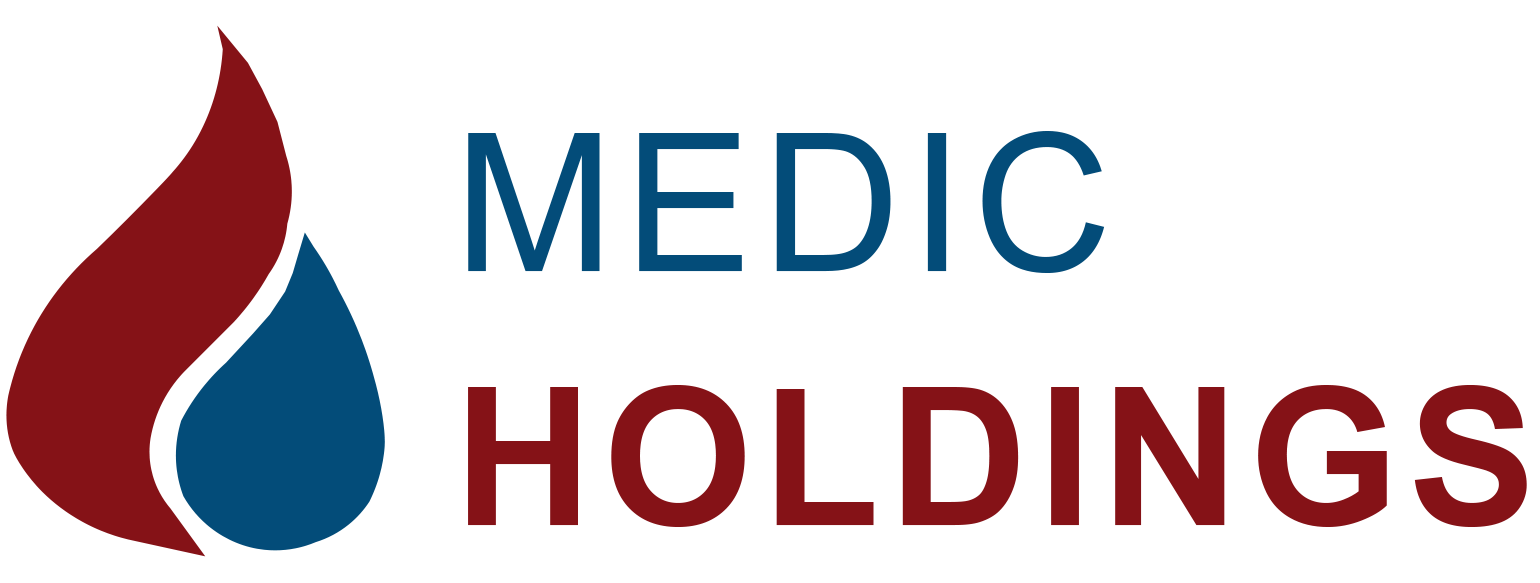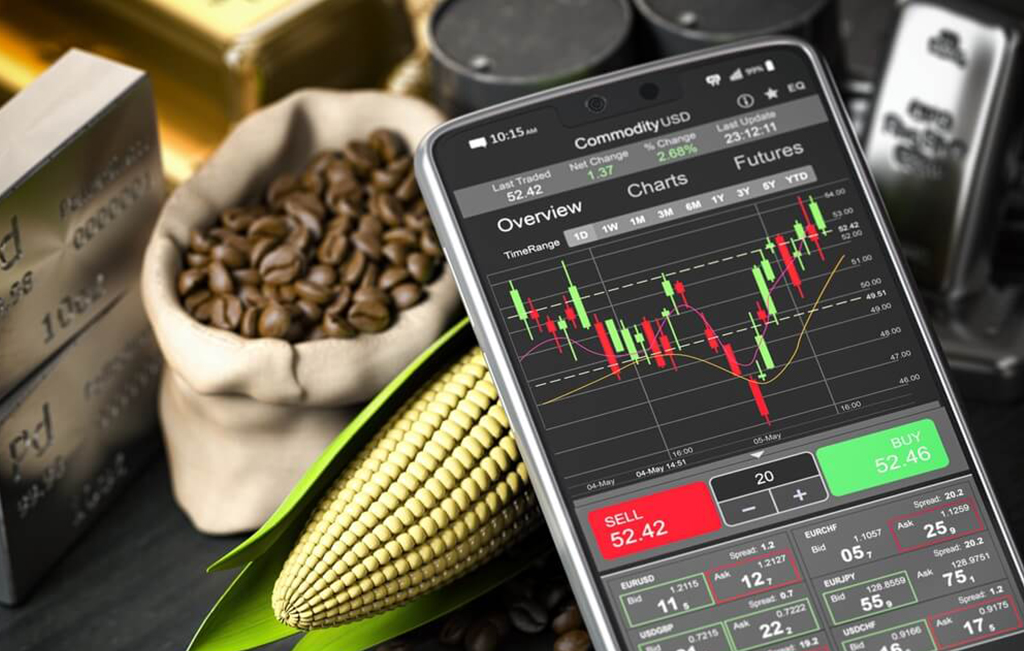For over a decade, Medic Holdings Limited has played a vital role in powering East Africa’s growth through the efficient sourcing, supply, storage, and distribution of petroleum products. Since its founding in 2013 in Uganda, the company has become a trusted name across the region—serving both retail and commercial clients in sectors such as transport, agriculture, manufacturing, and energy.
But times are changing. East Africa’s economic growth is expanding the scope of its needs, and as supply chains become more complex and globalized, smart companies must evolve or risk becoming obsolete. For Medic Holdings, evolution means more than just keeping the lights on—it means helping the region feed itself, trade better, and grow sustainably.
That’s why in 2024, following the successful launch of Meedek PTL FZE in Dubai, Medic Holdings announced its entry into the commodity trade business, starting with wheat and coffee—two of the most essential and dynamic commodities in East Africa.
This article explores how and why Medic Holdings is expanding its portfolio from oil to food, what it means for the region, and how its strategic global presence is transforming East Africa’s access to the commodities that matter most.
Why Diversify?
A Response to Market Signals
The global commodity market has shifted dramatically in the past five years. From climate change affecting crop yields, to war and geopolitical tension disrupting traditional grain corridors (e.g., Russia-Ukraine), East African countries have found themselves increasingly vulnerable to:
-
Wheat shortages and price spikes
-
Logistical disruptions in importation
-
Currency fluctuations impacting food security
At the same time, coffee, one of East Africa’s most valuable exports, has seen record-breaking global demand, especially from Europe, Asia, and the Middle East. Unfortunately, many coffee producers in Uganda, Ethiopia, and Rwanda still struggle with:
-
Unstable prices due to lack of direct market access
-
Limited value addition
-
Poor logistics and delayed payments
Medic Holdings saw these dual challenges—food insecurity and export inefficiency—as a call to action. By leveraging its deep understanding of supply chains and its new base in Dubai, the company began preparing for entry into agricultural commodity trade.
Strategic Expansion: Enter Wheat and Coffee
1. Wheat – Feeding the Region
Wheat is a dietary staple in much of East Africa. From bread and chapatis to noodles and porridge, wheat flour forms part of the daily meals for millions. However, the region heavily depends on imports, mainly from:
-
Russia
-
Ukraine
-
India
-
Australia
-
USA
Challenges in the Wheat Supply Chain
-
Volatile global prices
-
Lack of direct procurement relationships
-
Weak port and inland logistics
-
Bureaucratic bottlenecks
By entering the wheat trade, Medic Holdings aims to solve these issues in the following ways:
a. Direct Sourcing
Through Meedek PTL FZE, Medic now engages directly with global wheat exporters—cutting out middlemen and ensuring competitive pricing.
b. Supply Assurance
By securing long-term contracts and options from reliable suppliers, the company ensures a consistent flow of wheat to meet the region’s growing demand.
c. Logistics Optimization
With a strong presence in UAE shipping lanes and East African distribution, Medic offers end-to-end delivery—offloading wheat in Mombasa or Dar es Salaam and transporting it efficiently inland.
2. Coffee – Elevating Africa’s Export Strength
Uganda, Ethiopia, and Rwanda are renowned for their high-quality Arabica and Robusta coffee. Yet, most of the coffee leaves the continent as raw beans with minimal value capture for producers. Medic Holdings sees an opportunity to:
-
Help farmers access better prices
-
Improve traceability and standards
-
Connect with premium buyers globally
a. Export Platform via Dubai
With Meedek PTL FZE, Medic now provides direct access to Middle Eastern, Asian, and European buyers. Dubai’s strategic position as a re-export and trade hub makes it the ideal gateway.
b. Support for Local Farmers
The company is working with cooperatives and aggregators to:
-
Provide fair pricing models
-
Promote certified sustainable farming
-
Offer finance and insurance solutions
c. Focus on Quality and Branding
Medic is investing in branding East African coffee—not just as a commodity, but as a premium product with geographic identity, flavor profiles, and sustainability credentials.
A Logistics Backbone That Powers Trade
Medic Holdings is not entering this new business as a beginner—it is doing so with logistics muscle already proven in the petroleum sector. Here’s how that experience translates to commodity trading:
Warehousing & Storage
-
Investment in bonded and dry storage facilities across Uganda and Kenya
-
Plans to build commodity storage silos for grains
Fleet & Transportation
-
Leveraging its existing truck fleet to move wheat and coffee across borders
-
Partnering with rail and shipping operators for larger hauls
Customs & Compliance
-
Experienced in handling cross-border trade documentation
-
Already adheres to international import/export, sanitary, and phytosanitary (SPS) standards
This infrastructure creates a turnkey solution for anyone sourcing or buying from Medic Holdings—reducing risk and complexity for buyers and sellers alike.
Technology-Driven Trade
Medic Holdings is investing in digital tools to manage its growing operations:
-
Commodity Tracking Systems: Real-time data on stock, location, and delivery status
-
ERP Integration: Linking procurement, warehousing, accounting, and sales
-
E-commerce Portal (in development): Allowing small and medium buyers to order wheat or coffee online and track deliveries
These technologies help improve transparency, build trust, and attract international partners seeking accountability and efficiency.
Sustainability and Ethical Trade
Medic Holdings’ expansion into commodities does not lose sight of its commitment to sustainability, ethics, and community welfare.
Coffee
-
Working only with cooperatives and farmers who follow sustainable practices (shade-growing, organic methods, reduced pesticide use)
-
Promoting female-led farms and youth employment in coffee value chains
Wheat
-
Exploring partnerships to support local wheat farming in Uganda and Kenya
-
Reducing post-harvest losses through modern storage and training
Carbon Neutral Goals
-
Using efficient transport and planning to reduce emissions
-
Considering participation in carbon offset schemes for global buyers
Impact on East Africa
Food Security
-
Better access to quality, affordable wheat helps reduce hunger and stabilize prices
-
Support for local farming will eventually reduce import dependence
Export Revenue
-
Coffee farmers and cooperatives benefit from higher earnings, premium markets, and direct trade relationships
Employment
-
Jobs in warehousing, logistics, quality control, export management, and farming are created throughout the value chain
Private Sector Leadership
-
By entering and improving these markets, Medic Holdings sets an example of what homegrown African enterprises can do on the global stage
Voices from Leadership
“This is not a departure from who we are—it’s an extension. From fueling vehicles to feeding people, we are still solving critical needs. Whether it’s oil, wheat, or coffee, we are committed to building sustainable, cross-border supply chains that make life better for East Africans.”
— Abdul Kazibwe, Managing Director, Medic Holdings Limited
Looking Ahead
The move into commodity trade is just the beginning. Medic Holdings is actively researching future investments in:
-
Rice and sugar trade
-
Agro-processing facilities (flour mills, coffee roasters)
-
Climate-smart agriculture partnerships
-
Digital marketplaces for smallholder farmers
The goal is not just to be a commodity trader, but to become a regional agribusiness powerhouse—one that delivers value from the farm to the fork, and from the region to the world.
Conclusion: One Platform, Many Possibilities
By combining its experience in petroleum, its logistics infrastructure, and its international footprint in Dubai, Medic Holdings has positioned itself as a new kind of trade platform—one that can adapt, diversify, and thrive in a dynamic global economy.
As East Africa looks to the future, Medic Holdings will be right there—moving not just energy, but opportunities, across borders.
Connect with Us
📞 Call:
+256 782 097098
+256 702 097098
📧 Email:
[email protected]
🌐 Visit:
Medic Holdings Limited – Uganda
Meedek PTL FZE – Umm Al Quwain, UAE

